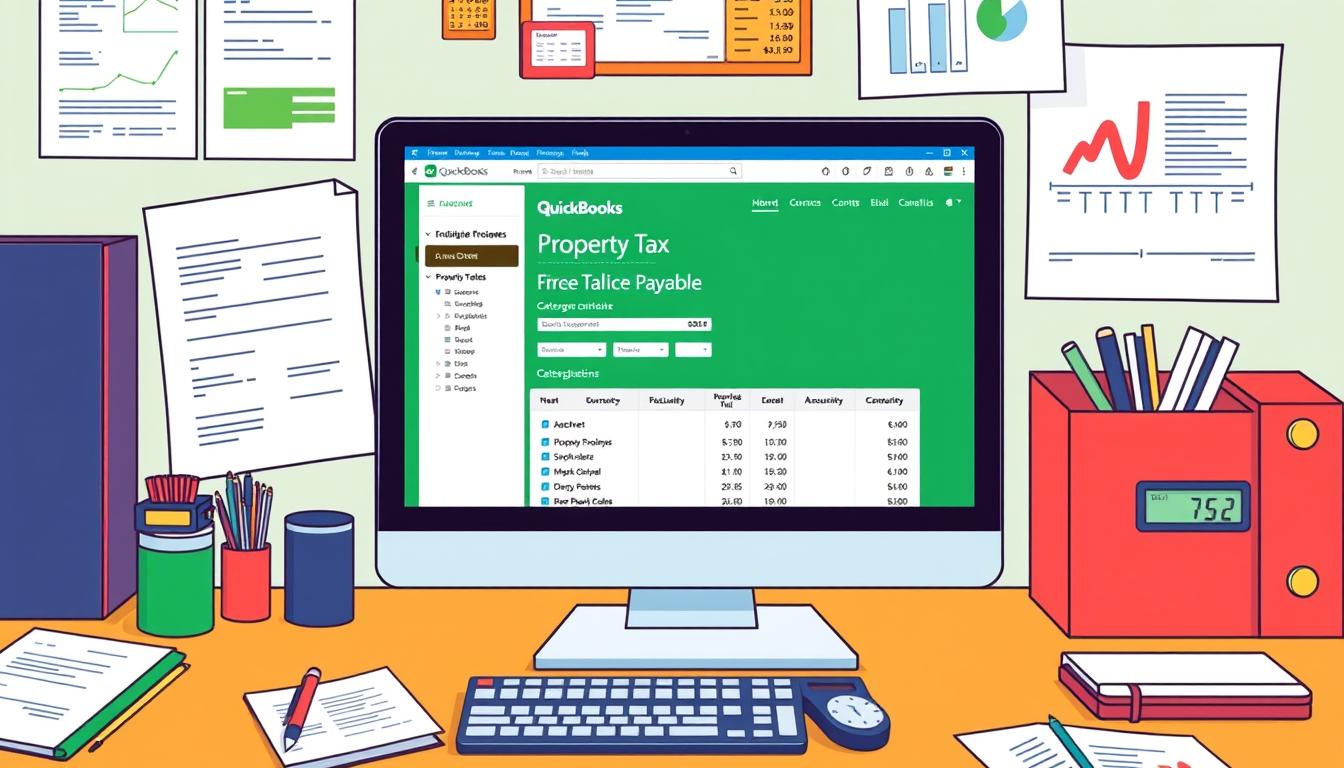
What is quickbooks software
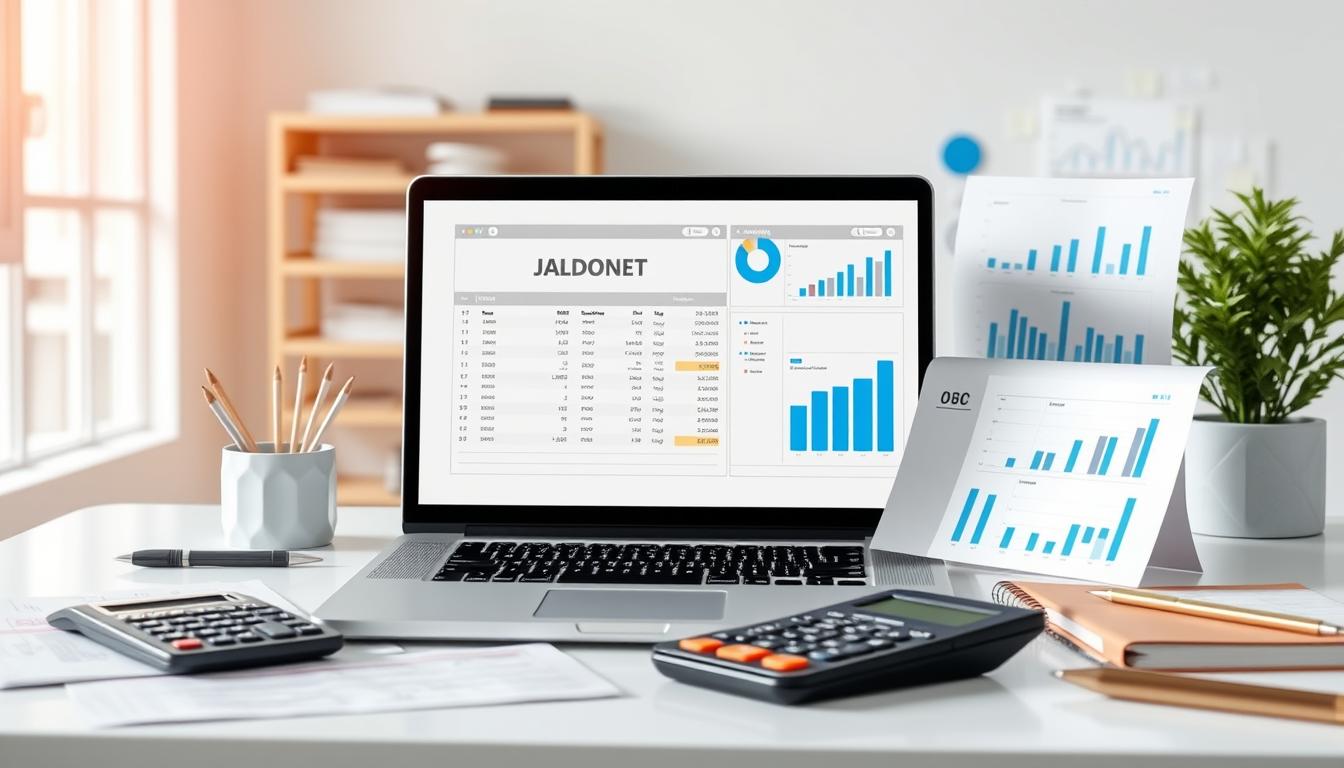
Table of Contents
QuickBooks software is a top choice for small to medium-sized businesses. It’s made by Intuit and helps with managing money. This includes tracking money coming in and going out, making invoices, and creating detailed financial reports.
Its easy-to-use design makes complex tasks simple. QuickBooks helps business owners manage their finances better. It’s a key tool in the United States for keeping finances in check.
Key Takeaways
- QuickBooks software is ideal for small to medium-sized businesses.
- It offers features for invoicing, expense tracking, and financial reporting.
- The user-friendly design simplifies complex accounting tasks.
- QuickBooks enhances overall financial management and visibility.
- It is a leading choice in the United States for accounting solutions.
Introduction to QuickBooks Software
QuickBooks has become a key tool in financial management since 1983. This overview of QuickBooks shows how it grew from a simple accounting program to a versatile software. It now meets the needs of many businesses, from freelancers to large companies.
The software has evolved with different editions for various needs. These versions offer effective accounting solutions for many industries. This makes QuickBooks a top choice for managing finances, fitting the needs of today’s businesses.
As small businesses and entrepreneurs look for better financial tools, QuickBooks delivers. It has strong features for accuracy and saving time. Its focus on innovation helps users handle their finances well.
| Year | Major Updates | Significance |
|---|---|---|
| 1983 | Initial launch | Introduced a simple accounting solution for small businesses |
| 1992 | Windows version released | Expanded user base with improved accessibility |
| 2001 | Online version launched | Provided cloud-based access for enhanced flexibility |
| 2020 | Advanced reporting features | Increased functionality for data-driven decision making |
Key Features of QuickBooks Software
QuickBooks has many features to make accounting easier for businesses. It offers tools for invoicing, billing, tracking expenses, and creating financial reports. These tools help solve common financial problems, making business operations smoother.
Invoicing and Billing
QuickBooks lets users create professional invoices with custom templates. This adds a personal touch. Automated billing saves time, making it easy to send recurring invoices.
Tracking payments is also simpler, helping manage cash flow better.
Expense Tracking
Expense tracking in QuickBooks keeps finances in check. It makes categorizing expenses easy and allows uploading receipts on mobile devices. This way, users can monitor cash flow in real-time, always knowing their financial status.
Financial Reporting
QuickBooks makes financial reporting easy for businesses. Users can create various reports, like profit and loss statements, balance sheets, and cash flow reports. These reports give decision-makers the information they need to make smart choices.
Different Versions of QuickBooks Software
QuickBooks software comes in various versions to fit different needs. Each version has special features. It’s important to pick the right one for your needs. The main choices are QuickBooks Online, the Desktop version, and the Self-Employed edition.
QuickBooks Online
QuickBooks Online is a cloud-based option. It lets users manage finances from anywhere. This is great for businesses with remote teams or those who are always on the move.
It has a subscription model. This means users get regular updates and many connected features. These support teamwork well.
QuickBooks Desktop
The Desktop version is for those who want the software on one computer. It offers strong functionality and advanced features. It’s perfect for businesses needing detailed reports and customization.
Many like it because they have full control over their data. They don’t need the internet to use it.
QuickBooks Self-Employed
The Self-Employed edition is for freelancers and independent contractors. It makes tracking income and expenses easy. It has tools for self-employed people’s unique needs.
Users can manage their finances quickly. They spend less time on paperwork.
Benefits of Using QuickBooks Software
QuickBooks software offers many advantages for businesses. It helps manage time better and improves financial accuracy. Using it can make daily tasks more efficient, helping businesses grow.
Time Efficiency
QuickBooks makes businesses more efficient. It automates tasks like making invoices and tracking payments. This saves time that was once spent on manual bookkeeping.
With more time, businesses can focus on their main activities. This boosts productivity overall.
Improved Accuracy
Accurate financial reports are crucial for any business. QuickBooks reduces errors by automating data entry and keeping data up-to-date. This gives users a trustworthy financial view.
QuickBooks helps make better decisions with its accurate and detailed reports.
Who Should Use QuickBooks Software?
Knowing who QuickBooks is for is key to getting the most out of it. It’s great for small business owners, freelancers, accountants, and financial experts. They all find it very useful.
Small business owners deal with a lot of financial stuff but might not know much about accounting. QuickBooks makes it easy with its user-friendly interface. It helps with invoicing, tracking expenses, and reporting.
Freelancers also find QuickBooks helpful. They have different clients and income sources. The software makes it easier to manage invoices and track payments.
Accountants and financial pros use QuickBooks too. They like its strong features for analyzing client finances. It helps them offer better services and saves time.
Here’s a quick look at who uses QuickBooks and what they need:
| User Type | Needs | Business Suitability |
|---|---|---|
| Small Business Owners | Simple financial management | Startups and growing businesses |
| Freelancers | Income and expense tracking | Independent contractors |
| Accountants | Client data organization | Accounting firms |
| Financial Professionals | Financial analysis | Consulting services |
How QuickBooks Software Helps Small Businesses
Small businesses face many tasks on a tight budget. QuickBooks offers accounting solutions to make financial management easier. It provides tools for bookkeeping, invoicing, and tracking expenses, helping entrepreneurs grow their businesses.
Many small business owners have seen big improvements with QuickBooks. It makes daily tasks smoother and financial reports more accurate. This saves time, letting owners focus on growing their businesses.
Studies show QuickBooks helps various small businesses. Sole proprietors and small retail shops find it efficient and easy to use. Here are some key benefits:
- Simple invoicing features for quick billing and tracking payments.
- Real-time expense tracking to avoid overspending.
- Robust reporting tools for making smart financial decisions.
Using these financial management tools daily makes work smoother. QuickBooks helps businesses understand their finances better. This understanding is key for planning and strategy. The software works well for businesses of all sizes and types.
| Feature | Description | Benefit |
|---|---|---|
| Invoicing | Create and send invoices swiftly. | Improves cash flow. |
| Expense Tracking | Log and categorize expenses easily. | Enhances budgeting accuracy. |
| Financial Reports | Generate reports for insights. | Supports informed business decisions. |
QuickBooks raises the bar for accounting solutions for small businesses. It changes how owners manage finances, letting them focus on success.
Integrating QuickBooks Software with Other Tools
QuickBooks software can be made more useful by linking it with other tools. This makes managing finances easier and more efficient. It involves connecting QuickBooks with other apps and using bank sync to make things smoother.
Third-Party App Integrations
QuickBooks can be linked with many apps to create a full financial system. Some common ones include:
- Payment processors like PayPal and Stripe
- E-commerce sites like Shopify and WooCommerce
- Inventory systems for better tracking
These integrations help automate tasks. This means data stays consistent and errors are fewer.
Bank Synchronization
Bank sync is a key part of QuickBooks. It lets users connect their bank accounts to the software. This brings in transaction data automatically. The main benefits are:
- Tracking money in real-time
- Quick account reconciliations
- More accurate financial reports
With good bank sync, businesses can keep their financial records current and correct. They won’t need to enter data manually all the time.
| Integration Type | Benefits |
|---|---|
| Payment Processors | Streamlines payment collection and improves cash flow |
| E-commerce Platforms | Automates sales tracking and inventory management |
| Inventory Management | Enhances tracking accuracy and reduces stock discrepancies |
| Bank Synchronization | Improves reconciliation accuracy and saves time on data entry |
Common Issues and Solutions with QuickBooks Software
QuickBooks is a great tool for managing money, but it can have problems. Users might see software glitches, crashes, lost data, or connection issues. Fixing these problems can make using QuickBooks much better.
First, figure out what’s wrong with QuickBooks. Keeping your software up to date can fix many issues. Make sure you’re using the latest version. Also, save your data often to avoid losing it if something goes wrong.
Another big problem is when QuickBooks can’t connect to banks. If this happens, try refreshing your connection or check your internet. These steps can help solve the problem.
The table below shows some common QuickBooks problems and how to fix them:
| QuickBooks Issue | Potential Solutions |
|---|---|
| Software Glitch | Update the software or reinstall QuickBooks. |
| Data Loss | Utilize backup options to restore lost data. |
| Connectivity Problems | Check internet connection; refresh bank connection settings. |
| Performance Issues | Clear cache and temporary files; adjust system settings. |
Using these troubleshooting tips can solve many QuickBooks problems. This helps users manage their finances smoothly.
Getting Started with QuickBooks Software
Starting with QuickBooks can feel overwhelming at first. It’s key to understand the onboarding process to use this powerful tool well. This guide will walk you through setting up your QuickBooks account. It covers the main steps for a smooth start.
Setting Up Your Account
The first step is to create your user profile. Here’s how to do it easily:
- Go to the QuickBooks website and pick the right version for you.
- Sign up with your email and a password.
- Enter your company details, like your business name and what you do.
- Adjust your account settings to fit your needs, such as currency or location.
Connecting your bank accounts will make tracking expenses and managing finances easier.
First Steps to Take
After setting up your account, take these steps to improve your QuickBooks experience:
- Create invoice templates to make billing easier.
- Import your current financial data to keep things consistent.
- Add third-party apps that fit your business needs.
Doing these initial tasks will give you a strong base for managing your finances. It will also help you get the most out of QuickBooks.
Future of QuickBooks Software
The future of QuickBooks looks bright, with big changes coming for businesses. As money matters get more complex, QuickBooks will use new tech. This includes innovation in accounting with artificial intelligence and machine learning.
Here are some big changes we can expect in QuickBooks:
- Improved security to keep financial data safe.
- Easy connections with new tech like blockchain and cloud services.
- Automation tools to cut down on manual work and boost efficiency.
QuickBooks wants to stay at the top in accounting by listening to users and keeping up with trends. These software updates will make QuickBooks better and easier to use. This way, businesses can handle their finances with more confidence.
Conclusion
QuickBooks is a vital tool for businesses looking to simplify their finances. It offers features like invoicing, expense tracking, and detailed financial reports. This makes accounting easy for everyone, no matter their skill level.
QuickBooks comes in different versions to meet various business needs. This ensures there’s a perfect match for every business.
It also works well with other apps and syncs with bank accounts. This makes managing finances smooth and efficient. QuickBooks is crucial in today’s fast business world.
It saves time, boosts accuracy, and helps make smart financial choices. Adopting QuickBooks could be the step your business needs for better financial management.
Looking at its features and how it integrates with other tools will help you see if it fits your business goals. This could lead to better financial health for your organization.
FAQ
What is QuickBooks software?
QuickBooks is a top accounting tool for small to medium-sized businesses. It makes managing money easier by tracking income and creating invoices. It also offers reports to help business owners understand their finances.
What are the key features of QuickBooks?
QuickBooks has many features like invoicing, expense tracking, and financial reports. These help users make professional invoices, track expenses, and get the financial documents they need.
How many versions of QuickBooks are available?
QuickBooks has several versions. There’s QuickBooks Online for cloud users, QuickBooks Desktop for traditional users, and QuickBooks Self-Employed for freelancers.
What benefits does QuickBooks offer businesses?
QuickBooks saves time by automating tasks and improves accuracy by reducing errors. It helps businesses run more smoothly.
Who should consider using QuickBooks?
QuickBooks is great for small business owners, freelancers, accountants, and financial pros. It’s easy to use and doesn’t require a lot of accounting knowledge.
How does QuickBooks help small businesses?
QuickBooks offers tools for easy bookkeeping, invoicing, and expense tracking. It helps small business owners manage their finances well and improve operations.
Can QuickBooks integrate with other tools?
Yes, QuickBooks works well with many third-party apps and services. This includes payment processors and e-commerce platforms, making it more useful.
What are common issues users face with QuickBooks?
Users might run into problems like software bugs, data loss, and connection issues. QuickBooks offers solutions and tips to fix these problems.
How do I get started with QuickBooks?
To start with QuickBooks, follow the setup process. This includes creating a profile, setting up settings, and customizing preferences. It’s a good idea to link bank accounts and set up invoice templates first.
What does the future hold for QuickBooks software?
QuickBooks is planning updates with artificial intelligence, better security, and new integrations. It aims to lead the accounting software market by meeting new needs and using new tech.
- Tags: intuit quickbooks, intuit quickbooks login, intuit quickbooks online, quickbook, quickbooks, quickbooks accounting software, quickbooks customer service, quickbooks customer service number, quickbooks desktop, quickbooks desktop 2024, quickbooks log in, quickbooks login, quickbooks login online, quickbooks online, quickbooks online accountant, quickbooks online accounting, quickbooks online customer service, quickbooks online login, quickbooks online pricing, quickbooks payroll, quickbooks self employed, quickbooks software, quickbooks support phone number, quickbooks time, quickbooks time login, quickbooks workforce
Top Products
- QuickBooks Desktop Pro 2024 US Version
- QuickBooks Desktop Pro 2023 US Version
- QuickBooks Desktop Pro 2022 US Version
- QuickBooks Desktop Premier 2024 US Version
- QuickBooks Desktop Premier 2023 US Version
- QuickBooks Desktop Premier 2022 US Version
- QuickBooks Desktop Accountant 2024 US Version
- QuickBooks Desktop Accountant 2023 US Version
- QuickBooks Desktop Enterprise 2024 US Version
- QuickBooks Desktop Enterprise 2023 US Version
- QuickBooks for Mac 2024
- QuickBooks for Mac 2023
Popular Posts

How to categorize property tax payable in quickbooks online
Knowing how to categorize property tax payable in QuickBooks Online is key for keeping your financial records right. Property tax payable is the amount your business owes in property taxes. It can greatly affect your financial health. By learning to categorize property tax well, businesses can make sure their financial statements show their true obligations.
This knowledge is crucial as we dive into the steps and best practices for handling property tax payable in QuickBooks Online.
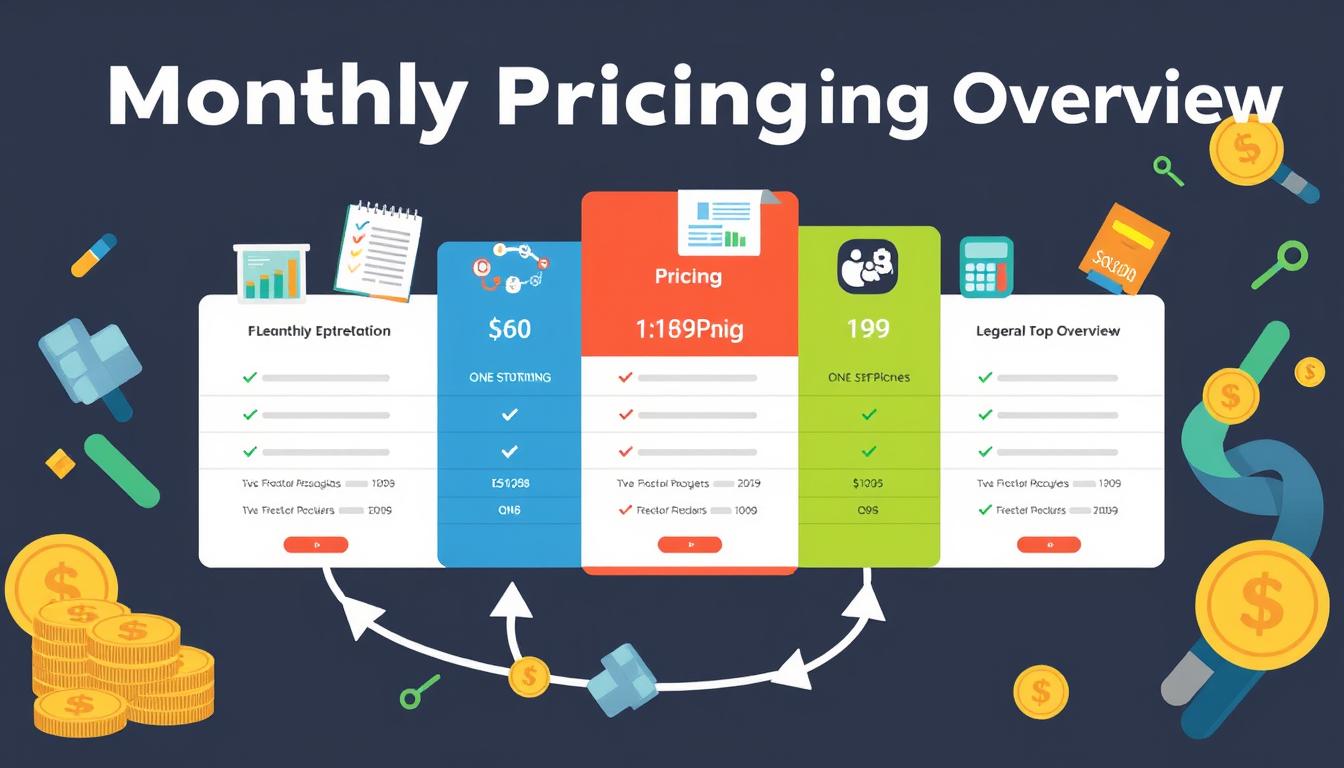
How much is quickbooks per month
Many users want to know the QuickBooks pricing for monthly costs. QuickBooks has various plans for different business needs. This lets users pick the right plan for their financial management.
What affects the QuickBooks monthly cost includes the QuickBooks edition, payment frequency, and extra features. This guide will explain the details of these plans. It will help you understand the costs of using QuickBooks for your business.

How does quickbooks work
QuickBooks is a key accounting software made by Intuit. It helps businesses manage their finances well. It works on a cloud-based platform, so users can access their financial data from anywhere.
This software makes tasks like bookkeeping, invoicing, and financial reporting easier. In this article, we’ll look at QuickBooks’ main features, its users, benefits, and challenges. We aim to help you understand how it can improve your financial management.

How do you record insurance payment in quickbooks
Recording insurance payments in QuickBooks is key for good insurance accounting. It helps business owners manage their money well and keep their books right. This is vital for the health of any business.
In this guide, we’ll show you how to record insurance payments easily. We’ll use QuickBooks guides and tips from accounting experts. This way, you can keep your financial records up to date.
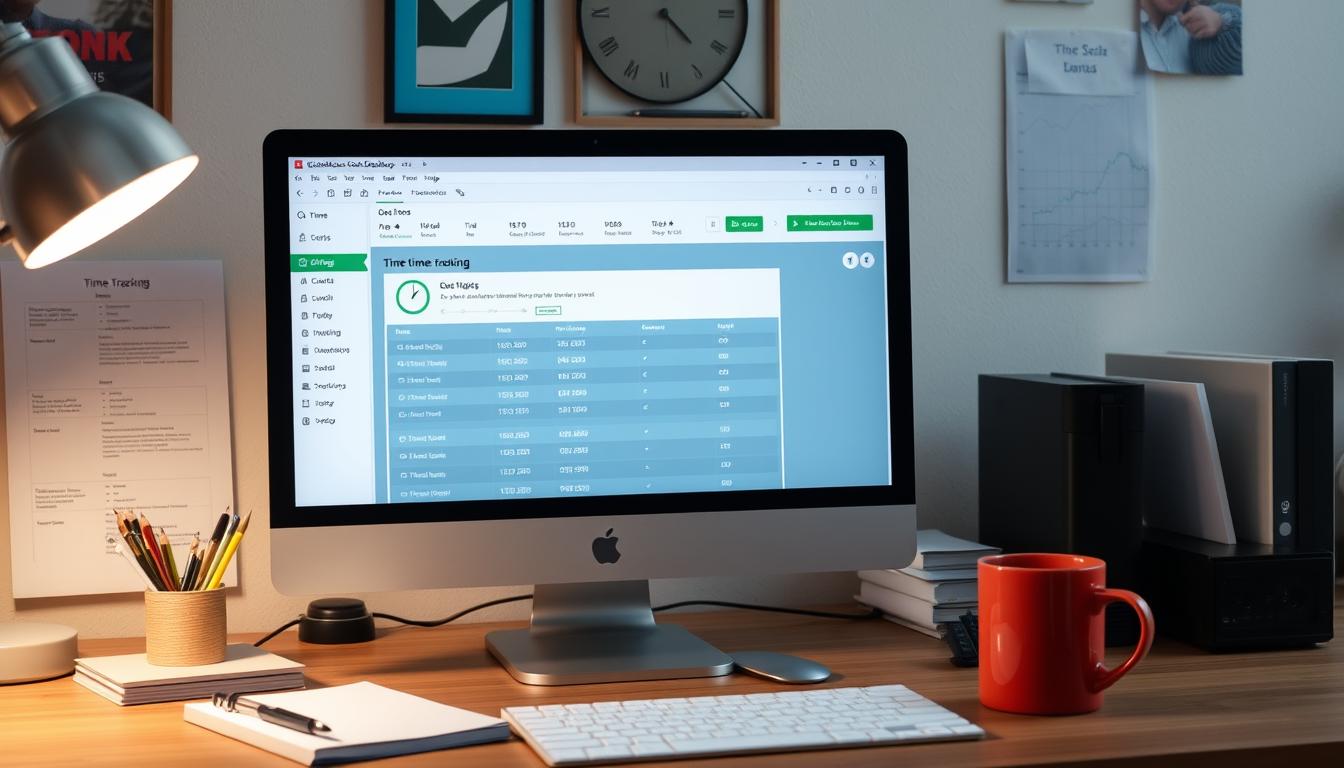
How do you clock in hours in quickbooks desktop
In today’s fast-paced world, tracking time well is key for good payroll management. This article will show you how to clock in hours in QuickBooks Desktop. It’s a top accounting software that makes managing tasks easier. By learning how to track time, businesses can work better and pay employees right.
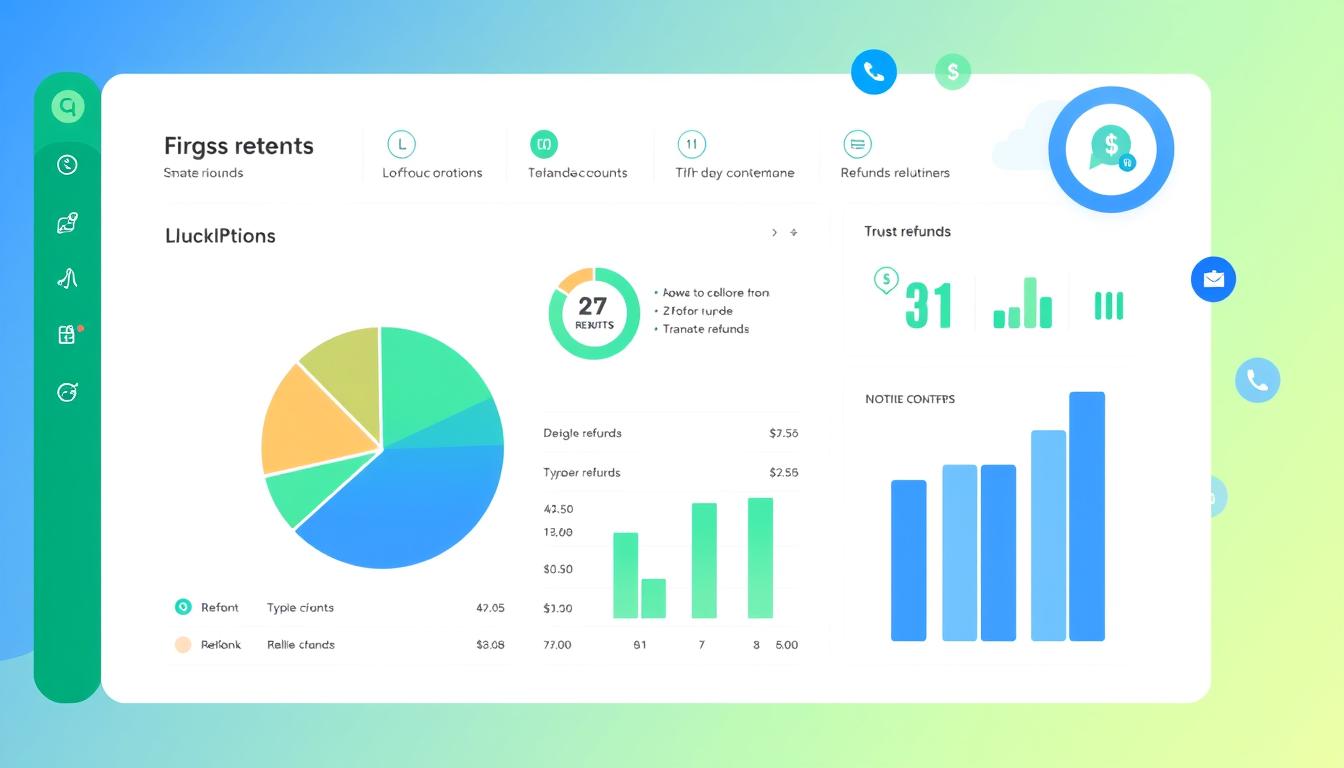
How are refunds categorized in quickbooks online
Knowing how to categorize refunds in QuickBooks Online is key for good financial management. It’s important to record refunds correctly to keep your finances clear. Businesses of all sizes can benefit from knowing how to do this right.
This knowledge helps make your financial records clear and accurate. It’s a basic step that can make a big difference.

Does quoteiq accept quickbooks online payments
Payment solutions are key in today’s business world. Many are looking into how platforms like QuoteIQ can improve their invoicing. A big question is: does QuoteIQ accept QuickBooks Online Payments? This article explores how QuoteIQ and QuickBooks Online Payments work together.
This shows how important it is to have good payment integration. It helps with cash flow and makes operations smoother. We’ll look at the benefits of using QuoteIQ with QuickBooks Online Payments. Plus, we’ll show you how to set it up.
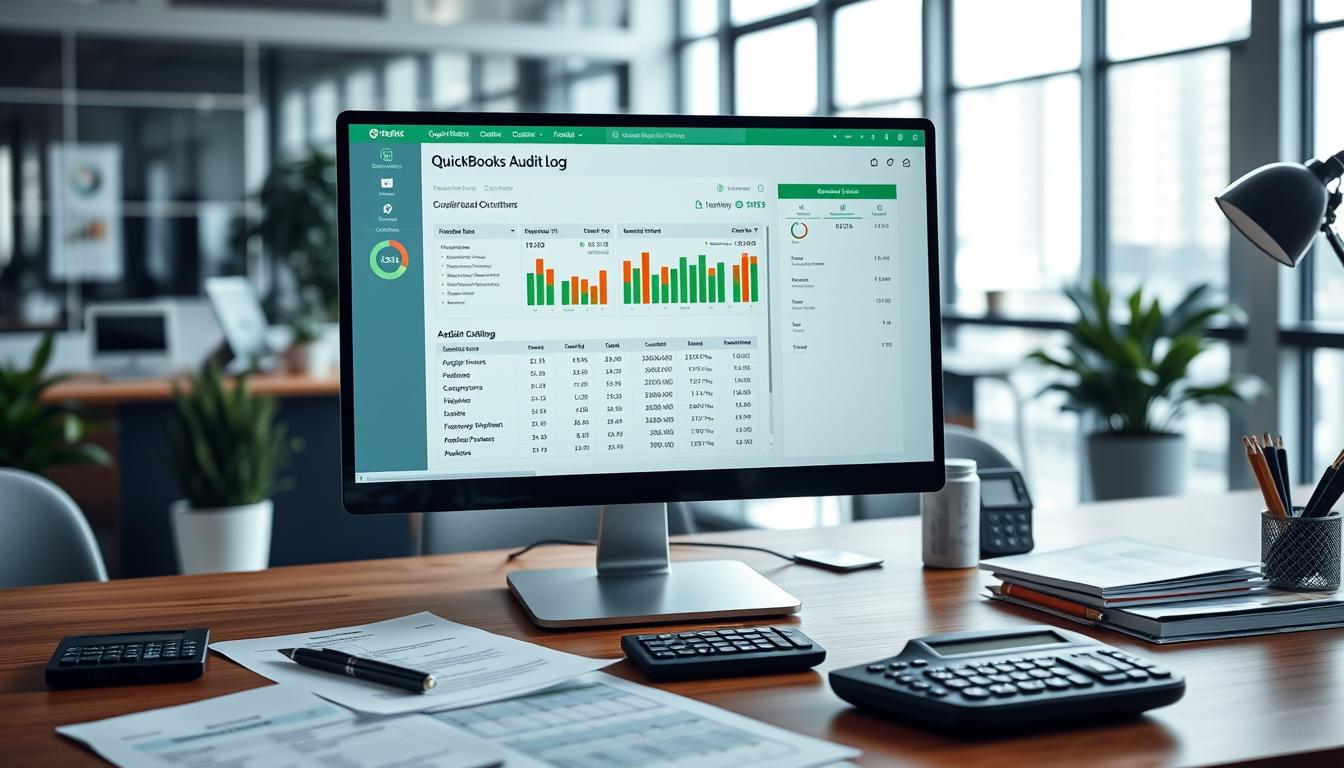
Can you delete history under audit log quickbooks online
It’s important to know if you can delete entries from the audit log in QuickBooks Online. This is key for businesses that focus on financial accuracy and follow the rules. The audit log QuickBooks Online keeps a detailed history of changes to financial data. This ensures that all account activities are recorded clearly.
By tracking these changes, the audit log is crucial for good financial management. We will look into why the audit log matters and what happens if you try to delete its records. We’ll see how these actions impact your QuickBooks history.
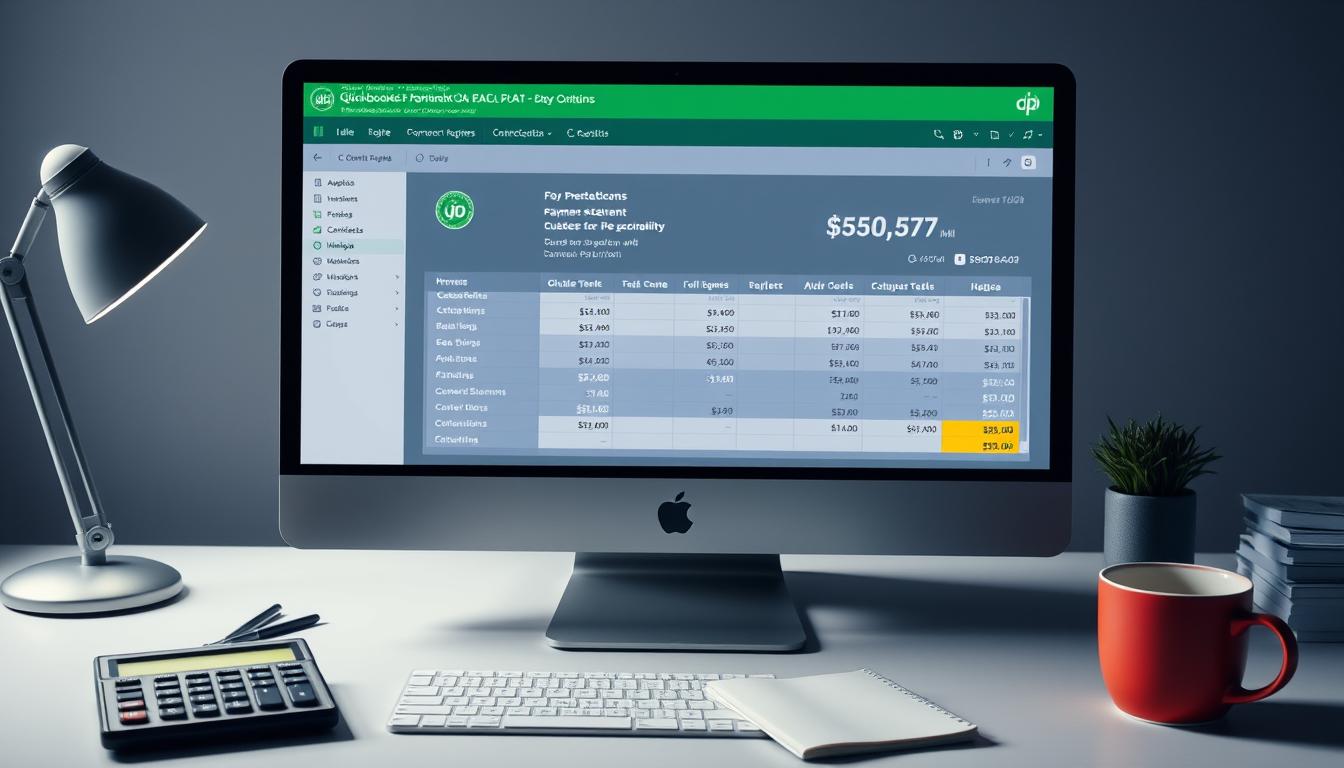
Can quickbooks recievepayment by statements rather that individual invoices
In today’s fast-paced world, businesses need quick and easy ways to handle payments. Many QuickBooks users wonder if they can pay by statements instead of invoices. This method makes accounting simpler for companies.
Using payment statements has big advantages over traditional invoices. QuickBooks helps businesses manage payments better. This article will show you how payment statements work in QuickBooks and how they can help your business.
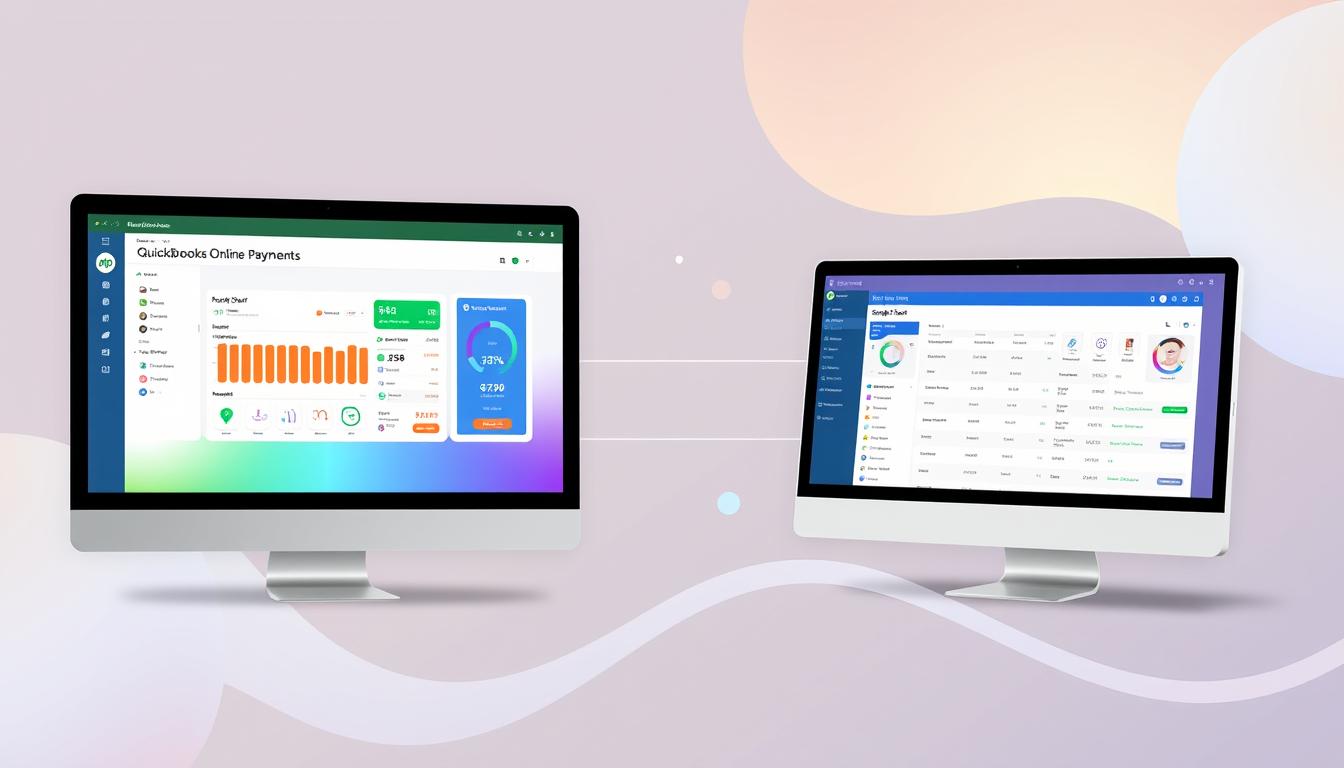
Can quickbooks online payments work with simple start
For small business owners, the question of whether QuickBooks Online Payments and QuickBooks Simple Start can work together is key. This integration is vital for managing finances effectively. It helps users handle transactions smoothly while using a basic accounting tool for solo businesses.
QuickBooks Online Payments lets users take payments online, making cash flow management easier. In this article, we explore how these two tools can boost efficiency for small businesses.